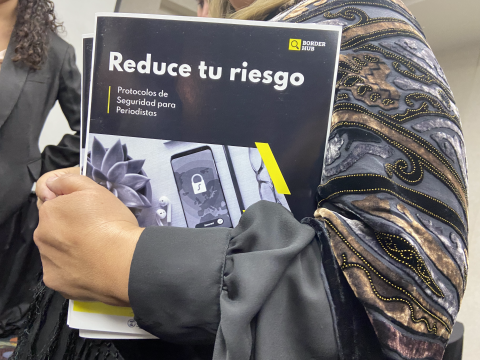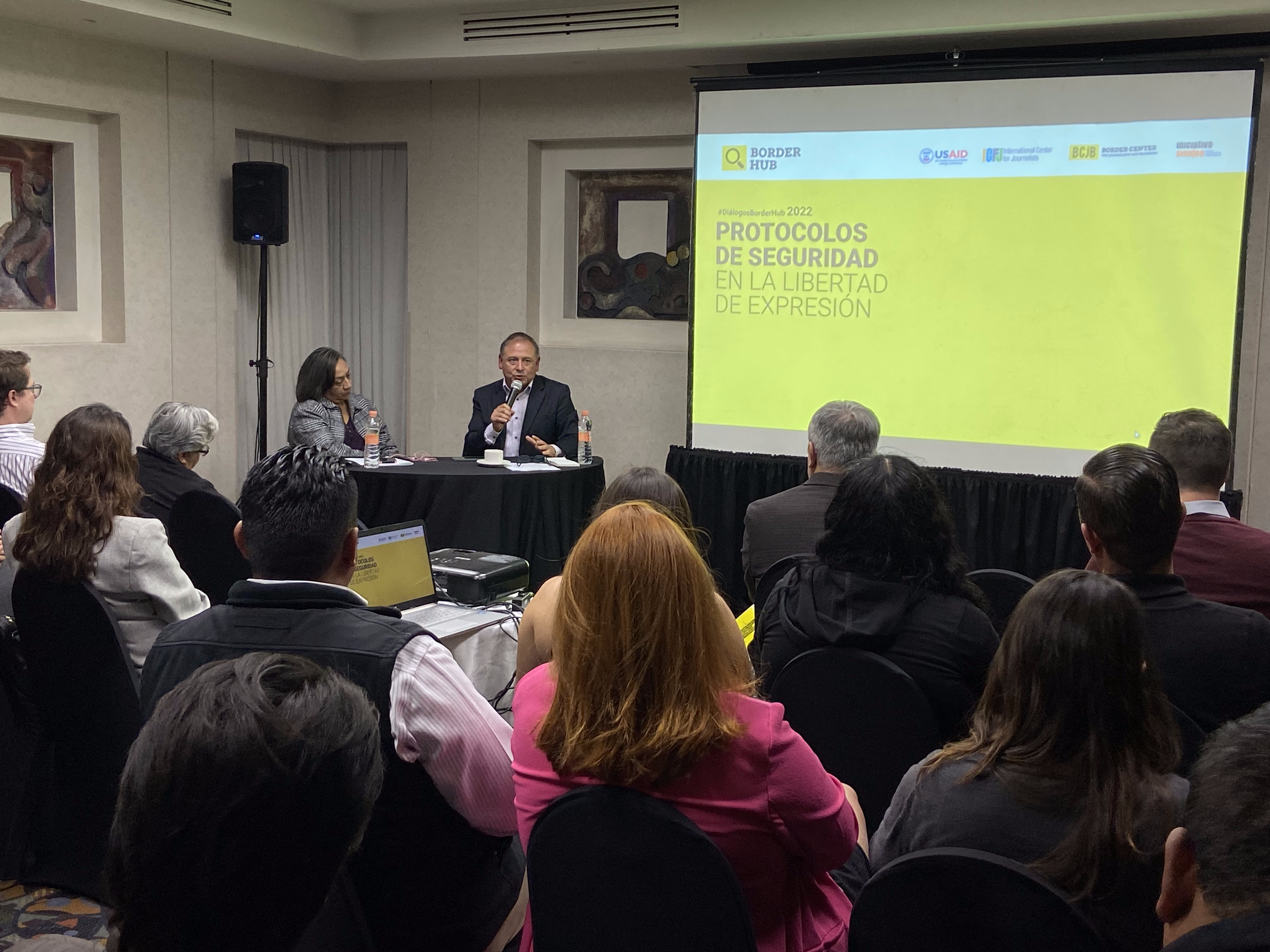
After several attacks against Mexican journalists throughout 2022, the International Center for Journalists (ICFJ) and the Border Center for Journalists and Bloggers collaborated with USAID-Mexico to develop security recommendations and guidance for journalists working on the U.S.-Mexico border.
The Border Center in November trained journalists how to apply the protocols in their day-to-day work. The Iniciativa Sinaloa broadcasted the event. The panel discussion included a presentation from Border Hub journalists Maria de la Luz Sosa (editor, El Diario de Cuidad Juarez), Rosario Mosso (editor and investigative reporter, Semanario Zeta), Vicente Calderon (director, Tijuana Press), and Francisco Sandoval (investigative journalist and mentor, Border Hub).
The panelists talked about what worked when reacting to different types of threats. They also explained how to reduce risks before and after an investigation is published. The journalists advised and encouraged the next generation of professionals. The event also highlighted the need to provide security training to media editors, journalists working in high-risk areas, and vulnerable groups facing different risks.
These protocols guide journalists and human rights defenders in how to reduce the risk significantly when there is a threat of serious physical, legal, digital, or psychological harm to their organizations and people. The authors state that the guidelines are neither static nor definitive. They are documents that must be tested and improved by the experience of every journalist or human rights defender who uses them to improve their security. The document includes action protocols in the case of:
- Threat surveillance
- Sexual harassment
- High-risk investigations
- Information sources
- High-risk areas
- Legal harassment
- Serious security incidents
- Digital security

Download the Security Protocols in Spanish
This is a project of the International Center for Journalists in partnership with the Border Center for Journalists and Bloggers, with support from the United States Agency for International Development (USAID). The author of the report is Jorge Luis Sierra, director of the Border Hub and president of the Border Center for Journalists and Bloggers. Jorge Sebastian Sierra collaborated on the document, and Carlos Mendoza produced illustrations.
DISCLAIMER: The content of this text is the responsibility of its author and does not necessarily reflect the point of view of USAID or the United States government.